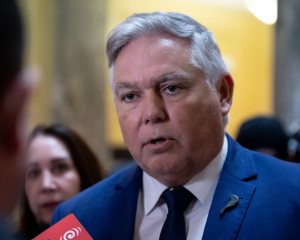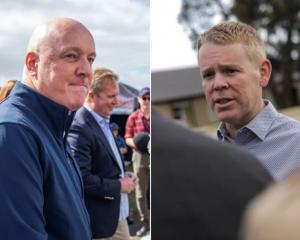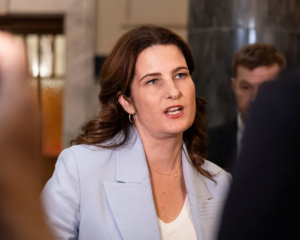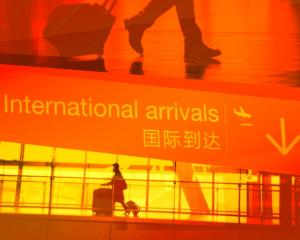Mr Key said today he had received a formal invitation with usual and full speaking rights and intended to go. However, he said a large number of protesters could physically blocked him from the lower marae.
"At this stage the indications we have are of very large numbers of protesters. I could be blocked from getting on."
"That's not an issue the [marae] trustees have raised with us, but we just know the logistics of being there."
Mr Key said he was not concerned for his own safety, but sheer numbers of protesters meant getting onto the marae grounds may become impossible.
Police may not let him go on to the marae if the situation was too volatile, and Mr Key said had concerns about the safety of his staff.
"But also there is a limit to the practical capacity for the police to deal with the situation safely. I can't put a whole lot of people in the situation where they could be endangered.
"If there are really large numbers of people, that could be overwhelming for the Maori wardens and others to deal with up there."
The Prime Minister said he would do everything he could to attend, and would talk about issues including TPP, the review of Child, Youth and Family and broader economic and education issues.
Mr Key's attendance was uncertain after conflicting responses from a hui of marae organisers and Ngapuhi leaders yesterday.
He had said if he was not asked to the marae or told he could not speak, he would not go to Waitangi, despite other commitments such as the dawn service, meetings with iwi leaders and his annual Waitangi breakfast.
After yesterday's hui, marae elder Kingi Taurua said most had voted against Mr Key attending, which meant he would not be invited.
But marae trustee Emma Gibbs said the trustees were inviting Mr Key despite that vote. However, Mr Key would not be given speaking rights beyond a response to the powhiri.
Yesterday, Mr Key said the main aim of visiting Waitangi was to honour the Treaty but he went to the lower marae to discuss the issues of the day.
"I'm not going if I can't speak. It's pretty simple," he said. That would mean "I'd go on and completely ignore what [protesters] were saying or in fact not rebut the obvious things they are getting wrong and misleading everyone".
The lower marae gets government funding to help cover the costs of hosting around Waitangi Day, this year it has a grant of $2500. The Waitangi Day Commemorations Committee, which looks after events on the Treaty grounds, has a grant of $119,500 to run events such as the dawn service. The Waitangi National Trust gets $20,000 for its hosting responsibilities.
Where is Te Tii Marae?
Also known as the Lower Marae, it is a Ngapuhi marae at the mouth of the Waitangi River just before the bridge to the Treaty grounds. Politicians are welcomed on to Te Tii on February 5 to acknowledge local iwi before visiting the national Treaty grounds including the Upper Marae on Waitangi Day. It has been a focus of protests against successive Prime Ministers and political leaders.
Have Prime Ministers always gone?
No. Former Prime Minister Helen Clark skipped Te Tii after she was brought to tears in 1998. She returned briefly in the early 2000s but gave up after she was jostled. Mr Key has gone every year since 2007.
Why does the Prime Minister want to go?
After Helen Clark stopped going, in 2007 he pledged to return every year if he was Prime Minister.
- By Nicholas Jones of the New Zealand Herald










